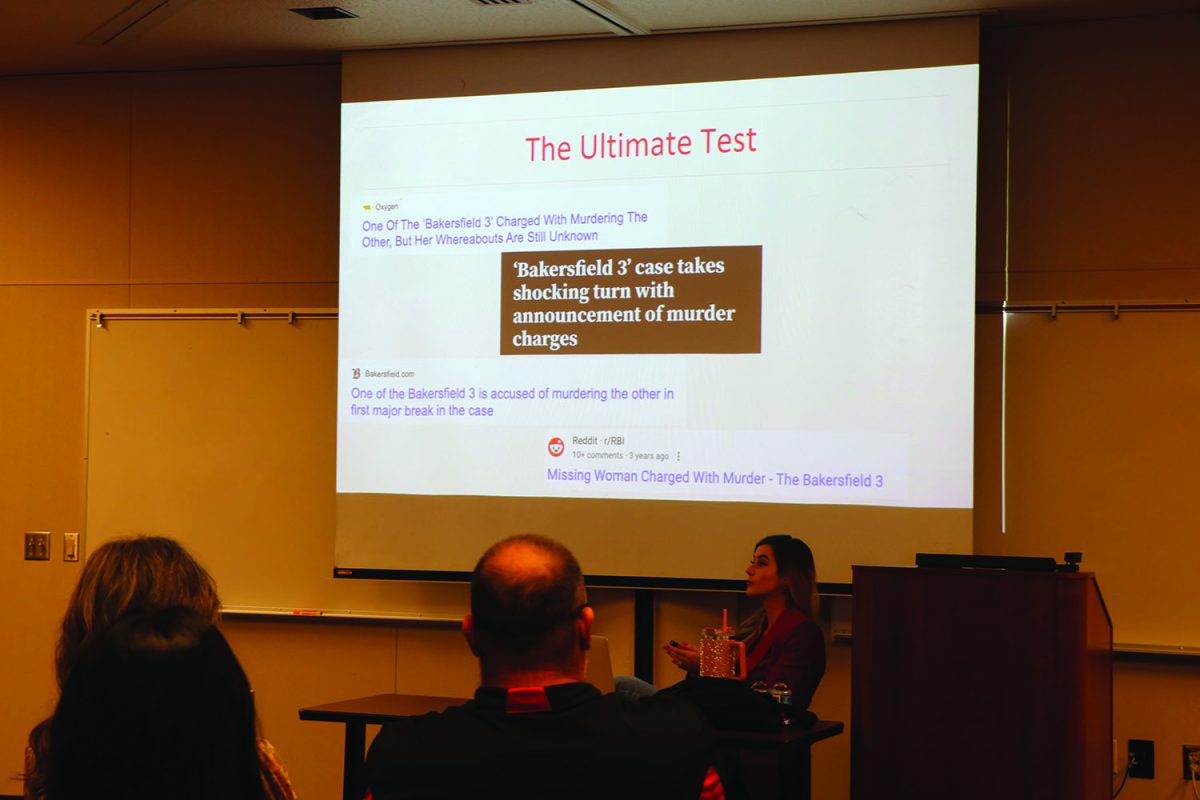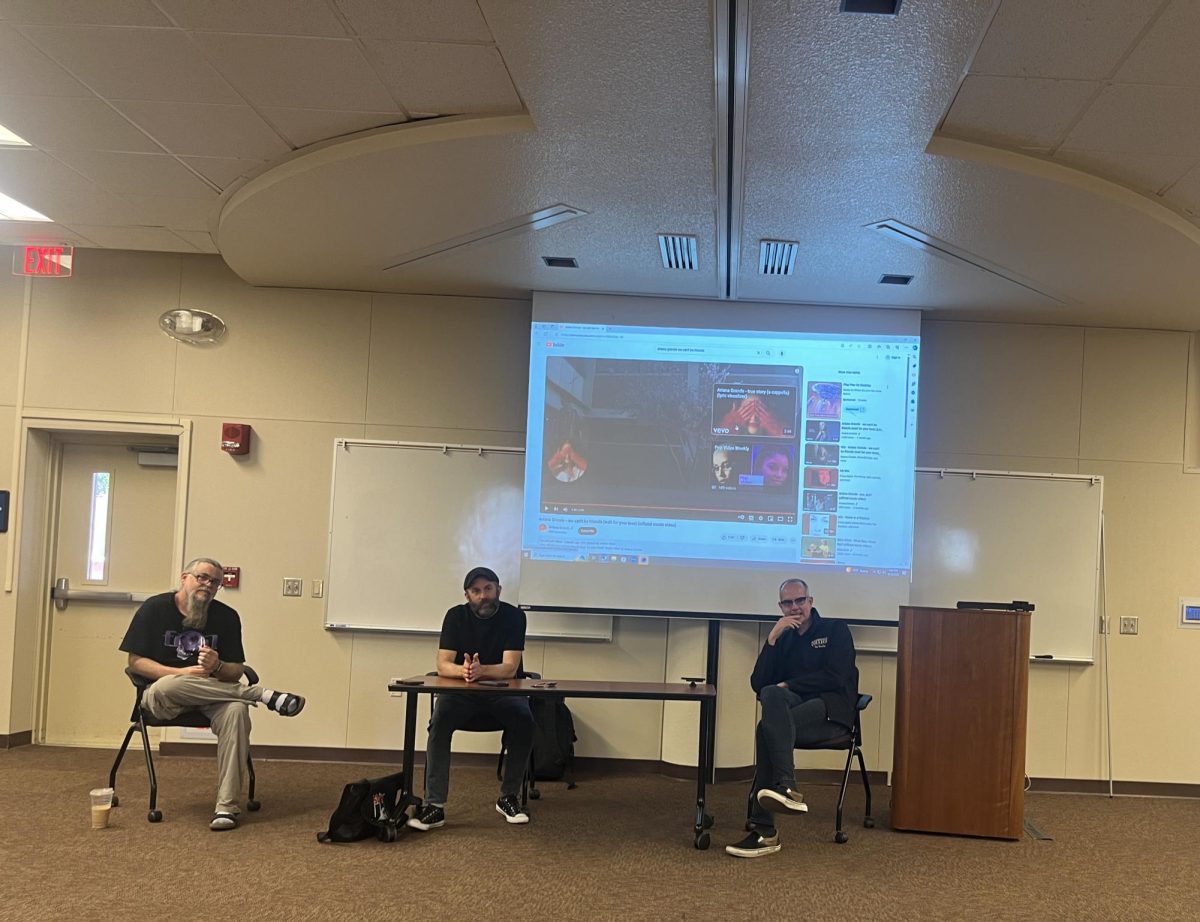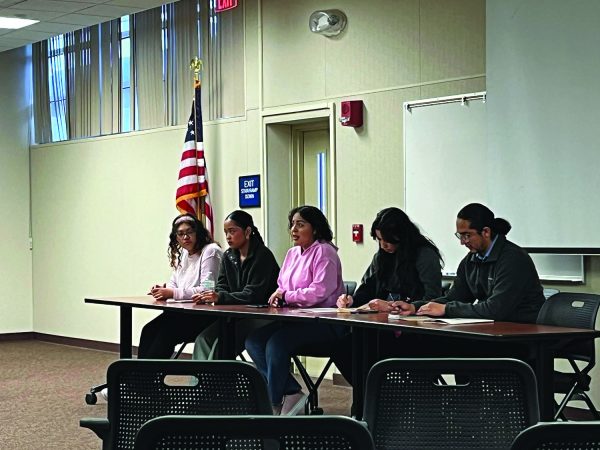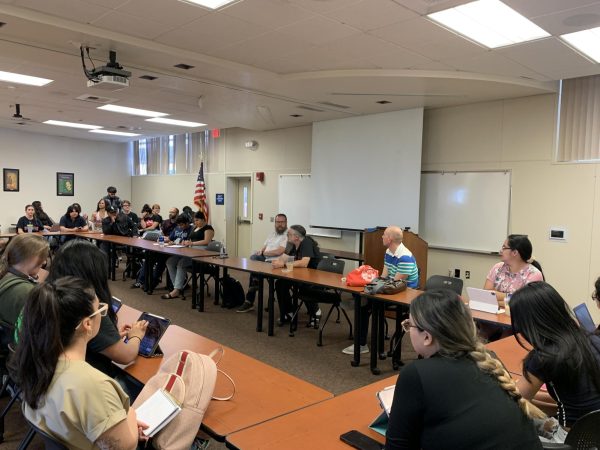Professors discuss college enrollment rates
October 26, 2018
In the Oct. 24 Renegade Roundtable “Does Society Send Too Many People to College? “ each of four Bakersfield College professors agreed on one answer: no.
Erin Miller, Steven Holmes, Michael Harvath, and Neal Stanifer brought up data and examples to support their points in the Levan Center discussion regarding whether the problem of rising college costs is due to the skewed appearance of college over time or students’ own low performance.
“We come to a difficult problem when we commodify education,” Miller said. “[Such as] when we tell people ‘this degree will get you a job, [which] will get you money, and we will pay you money to better yourself.”
Miller’s view focused on how colleges loan students money to keep retaking classes, leading to high failure rates because students end up attending only for the money.
Furthermore, she disagreed with fast-tracking students who aren’t college-prepared, and wanted students to retake classes as many times until they feel it necessary to move on.
“We believe in [our students’] ability to do what it takes to get a degree, but the students themselves have to be willing to do it, and we have to provide the support and patience for them to do it.”
Holmes, a political science professor, rebutted Miller’s argument.
“When you have a student that literally is taking the same class five, six … seven times, that is costing, yes, the student … but it is costing the taxpayers much, much more.”
The purpose of a professor is to evaluate students to see how they would perform in the real world, according to Holmes.
Holmes paid his own college education by working at a lumber mill, a job which didn’t require a college education, and which he calls “mindless,” but “physical.”
These kinds of jobs, according to Holmes, are over time replaced by machines, and so the demand for high school diploma level jobs will decrease as college educated jobs will increase.
“Educational demand for employment has grown, and will continue to grow,” Holmes said.
Stanifer’s argument centered around technological advancement, in line with Holmes’ points.
To him, we are sending too few people to college because though technology is substituting various job fields, society still needs humans to understand human needs.
Harvath shifted the tide of discussion by raising the question, “Do we need all this federal aid and guaranteed loans because tuition is going up so fast, or is tuition going up so fast because of all the aid and the debt?”
Harvath’s main concern was how the rising expenses of college are, in a sense, caused by the superfluous amount of people who attend because the job market requires that they do.
“We can continue this trend,” Harvath said. “Or we could fight [it] by … not requiring college degrees as a credential for jobs that don’t really need it.”














ak pachla • Nov 7, 2018 at 7:30 pm
great writing! thanks 🙂